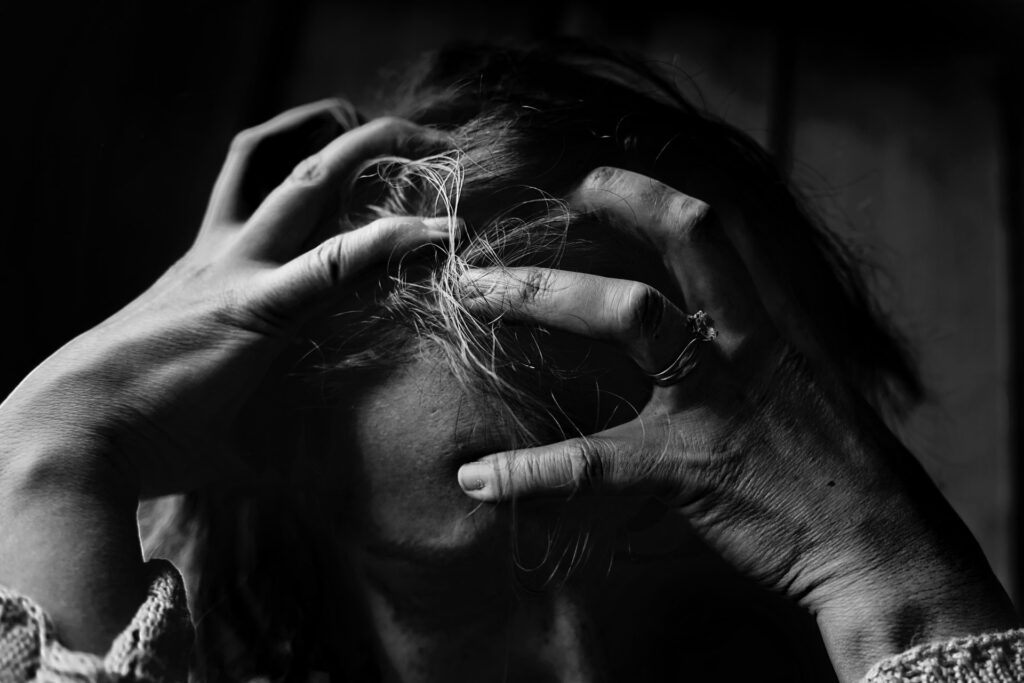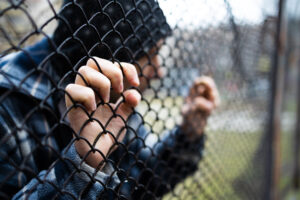WARNING: This article may contain content that is disturbing to some. Reader discretion is advised.
The Australian Defence Force Academy (ADFA) is a tri-military training establishment in the Australian Capital Territory. Here, cadets undertake military education and training combined with a university education so one day, they will be prepared to join the Navy, Army or Air Force.
The hazing rituals and “initiation” processes within the Australian Defence Force are well-known and documented. Young cadets (almost always under the age of 20) are bullied, harassed, beaten and sometimes even sexually assaulted as part of these rituals, leaving them with physical and emotional scars for the rest of their lives.
It’s not limited to the armed forces.
Cadets in training at ADFA have also been horrifically victimised.
In this article, we recount the Defence Abuse Response Taskforce’s investigation of the rampant physical and sexual abuse that occurred at ADFA in the late 1980s and throughout the 1990s.
Defence Abuse Response Taskforce commenced an investigation into ADFA abuse in 2014
Len Roberts-Smith, the Chair of the Defence Abuse Response Taskforce, called for an investigation and potentially even a royal commission into ADFA in 2014. In his opinion:
“The only way of ensuring confidence that the allegations of very serious abuse at ADFA can be thoroughly and completely investigated — and appropriately dealt with — is by way of a royal commission”.
The Taskforce started with an in-depth investigation into allegations of abuse. As of October 2014, the Taskforce had assessed 50 complaints and plausible allegations of abuse at ADFA. Out of 50 complaints, 33 involved allegations of sexual abuse that took place between the late 1980s and 2011.
All 33 victims were cadets when the abuse occurred, and so were their abusers.
25 of the victims were young female cadets and 8 were male. Most of the victims were around 17 years old at the time of the abuse.
Of the 33 victims:
- 28 reported at least one form of sexual abuse by other cadets, either from the same year or by more senior cadets.
- Four reported at least one form of sexual abuse by staff members at ADFA or more senior ranking members of Defence at other locations where cadets were undertaking training or at the Canberra Area Medical Unit—Duntroon (cAmu-D).
- One reported at least one form of sexual abuse but was unable to identify the alleged abuser.
The vast majority of victims who experienced sexual abuse were sexually assaulted, and they were all women targeted by men. Meanwhile, it was the men who experienced sexual abuse at the hands of multiple abusers or groups as part of an “initiation” process.
Multiple male victims reported the practice of “woofering”. Most of the victims were assaulted on multiple occasions for initiation.
“When I refused to have sex, I was groped again or pushed against a wall for refusing”
Many of the female victims were pressured into intercourse with their peers. One of the cadets said she was subjected to a wide range of abuse, including sexual harassment and attempted sexual assault, often on a daily basis.
“This usually occurred in the hallway of the female corridor — away from the rest of the division — and would sometimes involve one or more senior male cadets,” she told the Taskforce.
“I was groped, had hands shoved down my pants and up my shirt…— on occasion, they also tried to pressure me into having sex. When I refused to have sex, I was groped again or pushed against a wall for refusing.”
“These people were often (in my opinion) under the influence of alcohol. This would happen as often as twice a week some weeks.”
The abuse would often occur at or nearby the accommodation blocks, but sometimes in other locations like the Single Service Training Centre and in the ADFA car park. It would also often occur after celebrations in the mess hall or after social events when the cadets had been consuming alcohol.
One cadet said:
“I was at the back of the group and was starting up the stairs to the recreation room when I was grabbed by the arm and forced into his room. He then proceeded to hold me down and rape me whilst making very disturbing comments.”
Another cadet reported a man who had been harassing her for days and proceeded to make advances at an ADFA social event:
“His advances towards me were normal and appropriate to start with but I declined. Eventually, the remarks became more scornful like ‘look at you showing off your ass’ and ‘prick tease’,” she said.
“He repeatedly told me that I can’t run around teasing him and not expect to ‘put out’ and that I wouldn’t be a ‘prick tease’ to him if I didn’t really ‘want it’.”
While many of these stories are disturbing, one of the most horrific was a cadet who is believed to have had her drink spiked at a social event and woke up outdoors on the ground with a male cadet assaulting her.
“The next thing I remember is waking up for a few seconds and I was outside on my back. I was on the ground and it was grassy and cold… We were behind a hedge. He was having sex with me,” she said.
“He was on top of me. I don’t know how I got there. I tried to push him off but I didn’t feel in control of my body and I couldn’t do it. I couldn’t move.”
“I had an unloaded rifle fired at me and threatened with electrocution in the shower”
In the late 1980s and 1990s, there was a cadet hierarchy, and the junior cadets suffered the most. Out of the 50 victims that the Taskforce interviewed, 20 reported horrific physical abuse.
This took the form of hostage situations, punching, kicking, spitting, restraining the victim, drugging, threats of physical violence, rejection of medical assistance and care, overly harsh disciplinary action and disgusting hazing rituals where the victim was forced to consume faeces, rancid food or excessive amounts of alcohol.
One cadet claimed the first-year females in her division were forced to clean the male living spaces in their squadron. If the job wasn’t done right, they were severely punished and humiliated.
“All the first years in my division were relentlessly harassed and abused by third-year cadets. First year females in my corridor were responsible for cleaning the male living spaces in the adjoining corridor — these were senior cadets in my division/squadron,” she said.
“On several occasions, if I had not finished this in time and was still cleaning the toilet when the senior male cadets returned from the bar that night, they would urinate on me like I wasn’t even there.”
“I had one incident where I was cleaning the shower and was urinated on because someone else was using the toilet and the third year cadet did not want to wait.”
The women were also subjected to ongoing physical abuse for “fun”. One of the cadets was forced into a cupboard, made to squat and make animal noises until she was let out. Other cadets were picked up and thrown against walls, onto the floor or into the shower by male cadets.
“He physically assaulted me, threw me against a wall, then on the ground and attempted to punch me around my head. Two other cadets pulled him off me. The incident happened after some banter between the cadet and myself but for some reason, he snapped and the physical attack occurred.”
One male cadet said he was subjected to serious harassment, physical abuse and bullying when he tried to stand up for himself. On one occasion, he woke up to four senior cadets in his room who were threatening him with a hot iron that was plugged in at the wall.
He managed to force them out of his room, but he was later pinned against a wall and vomited on. He was also threatened with electrocution in the shower and was once thrown out a window.
“I had my hand held over a gaslighter to see how long I could endure the pain. I received bad burns,” he said.
Defence Abuse Response Taskforce backpedalled on a royal commission into ADFA in 2016
At the end of the Taskforce’s report into emotional, physical and sexual abuse, the Taskforce reversed its call for a royal commission into ADFA.
In the final report, it was noted that the Taskforce did not have the investigative power or authority to take direct action against members of the Defence Force. Instead, abuse matters were referred back to Defence to take action “where possible or appropriate”.
In regard to cases of sexual abuse at ADFA in the 1990s, the Taskforce consulted with the Australian Capital Territory Policing (ACT Policing) Criminal Investigations. The police said unless the victims consented to their allegations being referred to the civilian police, they would not initiate contact with them.
The final report also suggested victims of abuse did not want or even support the idea of a royal commission. The Taskforce came to this conclusion after speaking with former sex discrimination commissioner Elizabeth Broderick.
“The commissioner told the Taskforce that, while she believed doing nothing is not an option, her discussions with the women she had consulted who were sexually assaulted at ADFA want action to be taken but do not believe a royal commission is necessarily the best solution,” the final report said.
Three victims, however, asked for their cases to be referred to the Chief of the Defence Force for disciplinary action.
It was determined that a joint Australian Crime Commission (ACC) and Policing investigation would be the better solution as it would attract less media attention. However, this was also shot down as it did not meet the ACC’s functions.
Throughout the investigation, several abusers were still serving in the ADF
Throughout the investigation, the Taskforce discovered that multiple abusers were still serving members of the ADF. In 2013, the Taskforce identified at least 12 serving members as alleged abusers in cases of serious sexual, emotional or physical abuse of female cadets in the 1990s.
The Taskforce made 13 recommendations where the ADF could consider taking administrative or disciplinary action where alleged abusers were still serving.
In 2014, a further six abusers were identified as serving members of the ADF.
Eight of all alleged abusers were serving in the Navy, five in the Army and three in the Air Force. One had risen to the position of Commander/Lieutenant Colonel/Wing Commander.
Despite sharing all of this information with Defence, it was determined that no disciplinary action would be taken against the abusers because it was outside of the five-year statutory limit. However, they were working with two women to obtain civilian police records to determine if administrative action was possible.
The ADF is constrained when taking action against historical cases of abuse. Considering the time that has passed and the limited evidence available, it was not possible at the time to take disciplinary action against the perpetrators.
The Taskforce, however, had this to say:
“The fact remains that many of these allegations were not appropriately managed at the time they were made and the constraints on Defence’s capacity to respond to them now means that a significant cluster of very serious allegations of abuse at ADFA have never been thoroughly investigated and individuals alleged to have committed very serious offences have never been called to account.”
How Kelso Lawyers helps survivors of ADF abuse
Historically, the ADF has normalised a culture that supports and normalises abuse. Because of this, hundreds of serving and former members of the ADF have been forced to live with physical and emotional scars.
Many of those who have suffered have been bullied into silence.
There’s no knowing how many incidents of abuse have gone unheard and unreported out of fear of punishment.
At Kelso Lawyers, we’re here to help. Our team of expert, hard-working ADF abuse lawyers have worked with a large number of former ADF members to achieve compensation for the trauma they experienced.
Our lawyers will listen to what you have to say and provide the support you need to take a stand.
Something has to be done — and we’re here to help you do it.
If you have been abused while working for the Australian Defence Force, whether under 18 or as an adult, we want to hear from you. Please fill out the ADF Claimant Information form.
Feature Image: Pexels




